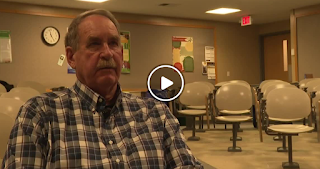Beekeeping Wisdom Unveiled: A Retired Researcher's Journey to Thriving Colonies
In the challenging landscape of beekeeping, where winters can be unforgiving, retired researcher Carl Korschgen has emerged as a beacon of wisdom, sharing insights that have propelled his colonies to remarkable survival rates. Last winter, marked as the second-deadliest for bees in the United States, Korschgen defied the odds with an impressive 89% of his colonies making it through.
Korschgen, a former U.S. Department of the Interior researcher, delved into beekeeping as a post-retirement hobby, joining the Boone Regional Beekeeping Association. Over almost 15 years, he embarked on a series of small, independent studies—an "exploration," as he calls it—to enhance colony survival.
His four-step strategy, born out of curiosity and dedication, focuses on feeding, ventilation, heating, and monitoring. Fall preparations include candy boards for emergency food and added ventilation holes. As winter sets in, Korschgen implements a heating system to maintain a bee-friendly constant temperature.
The results have been nothing short of remarkable, elevating his colony's survival rate from 50% to an impressive 85% or more each winter. Korschgen's surplus honey production, reaching 1050 pounds in 2022, has turned his beekeeping endeavors into a side business, with sales at local farmer's markets.
Yet, Korschgen remains committed to sharing his trade secrets, emphasizing a collective goal of ensuring success for all new beekeepers. "We want all new beekeepers to be successful," he asserts, reflecting the spirit of collaboration within the beekeeping community.
Looking ahead, Korschgen's focus shifts to the critical issue of varroa mites, a looming threat to beehives. His explorations began last summer, and he aims to expand the study next spring, driven by a relentless pursuit of sustainable and thriving bee colonies.
As Korschgen's beekeeping journey continues, his experiences serve as an inspiration and a valuable resource for those passionate about the well-being of these essential pollinators.
Beekeeping Wisdom: Retired Researcher Shares Insights for Thriving Colonies
Frequently Asked Questions (FAQ)
Q1: What is the central focus of the article about Carl Korschgen? A1: The article revolves around Carl Korschgen, a retired researcher, and his independent beekeeping explorations that significantly improved colony survival rates.
Q2: What challenges did Korschgen aim to address in his beekeeping strategy? A2: Korschgen focused on addressing concerns of cold and starvation by implementing a four-step strategy: feeding, ventilation, heating, and monitoring.
Q3: How did Korschgen's strategy impact his colony's survival rate? A3: With his strategy, Korschgen increased his colony's survival rate from 50% to upwards of 85% each winter, showcasing the effectiveness of his approach.
Q4: What steps did Korschgen take in his strategy during fall and winter? A4: In fall, Korschgen introduced candy boards for emergency food and added ventilation holes. In winter, he implemented a heating system to maintain a favorable temperature for the bees.
Q5: What is Korschgen currently focusing on in his beekeeping endeavors? A5: Korschgen is now dedicated to finding ways to reduce the threat of varroa mites to beehives, conducting explorations and planning to expand the study next spring.
#Beekeeping, #ColonySurvival, #PollinatorConservation, #EnvironmentalStewardship, #VarroaMites

